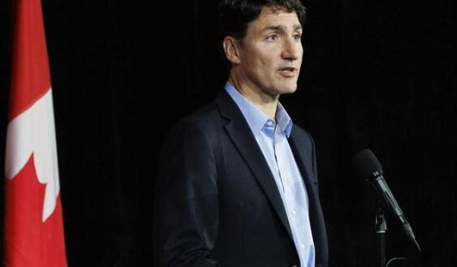Canada recently announced a 100% tariff on Chinese-made electric vehicles (EVs), aligning with similar measures taken by the U.S. This decision has sparked strong reactions from China, which warned that such tariffs could damage normal trade relations between the two countries. Liu Dan, a research fellow in China, criticized Canada’s move, stating that it unnecessarily risks bilateral economic exchanges. Canada’s largest labor union, Unifor, has supported the tariffs, emphasizing the need to protect Canadian jobs and industries from subsidized Chinese competition Teslarati
Canada announced a significant move on Monday by imposing a 100% tariff on imports of Chinese-made electric vehicles (EVs). This decision mirrors tariffs recently introduced by the United States and aligns with similar plans announced by the European Commission. The new measure comes after U.S. national security advisor Jake Sullivan encouraged such actions during a meeting with Canadian Prime Minister Justin Trudeau and other cabinet ministers. Sullivan, ahead of his first visit to Beijing, emphasized the importance of a unified approach among allies on trade issues with China.
Canada imposes a 100% tariff on imports of Chinese-made electric vehicles, matching the U.S. https://t.co/YjVWykZKJn
— hrdrckminer (@hrdrckminer) August 26, 2024
In addition to the EV tariff, Canada will also implement a 25% tariff on Chinese steel and aluminum imports. Prime Minister Trudeau stated that these measures are necessary to counter what he described as unfair advantages that countries like China have established in the global marketplace through heavy government subsidies.
The Canadian government’s stance reflects a growing concern about China’s state-supported economic strategies, which are seen as creating overcapacity and driving down global prices, particularly in sectors crucial for transitioning to a greener economy. Deputy Prime Minister Chrystia Freeland highlighted this in her remarks, stressing that Canada will not allow China’s policies to undermine its burgeoning EV sector. Freeland also announced a 30-day consultation period to consider additional tariffs on Chinese products such as batteries, battery parts, semiconductors, and solar panels.
The move aligns Canada with the United States, which in May imposed substantial tariffs on Chinese products including EVs, solar cells, steel, and aluminum. U.S. President Joe Biden has argued that Chinese subsidies allow their companies to sell goods at artificially low prices, disrupting fair competition in the global market. Canadian officials have echoed this sentiment, emphasizing the need for a coordinated international response to avoid a “race to the bottom” in trade practices.
Former Canadian ambassador to China, Guy Saint-Jacques, noted that Canada’s decision to follow the U.S. lead is partly due to the deep economic integration between the two countries, with over 75% of Canada’s exports going to the U.S. He also mentioned concerns about potential retaliation from China in other industries, such as barley and pork, where China could source from alternative suppliers.
Canada imposes a 100% tariff on imports of Chinese-made electric vehicles, matching the US #Electricvehicle #Chinahttps://t.co/NvwVtHxg6A
— Joann Graham (@graham_joa44624) August 26, 2024
As tensions continue to escalate, Chinese officials are expected to raise the issue of these tariffs with Sullivan during his visit to Beijing. Meanwhile, Canada braces for potential economic repercussions as it takes a firm stance against what it views as China’s unfair trade practices.
Key Points:
i. Canada imposed a 100% tariff on Chinese-made electric vehicles, aligning with similar measures by the U.S. and EU.
ii. Additional tariffs on Chinese steel and aluminum were also announced, alongside a potential extension to other sectors like batteries and solar panels.
iii. The decision follows U.S. encouragement and aims to counter perceived unfair advantages from Chinese government subsidies.
iv. Canada’s actions reflect a need to align with the U.S. due to economic integration and concerns about future trade relations.
v. Possible retaliation from China could affect Canadian industries such as barley and pork.
James Kravitz – Reprinted with permission of Whatfinger News



